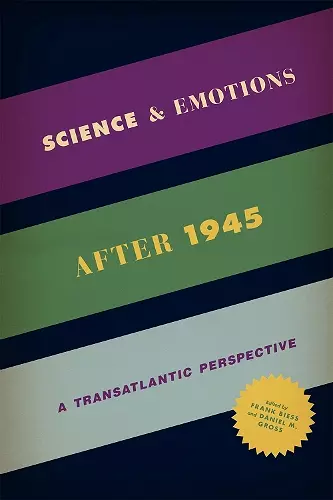Science and Emotions after 1945
A Transatlantic Perspective
Frank Biess author Frank Biess editor Daniel M Gross editor
Format:Paperback
Publisher:The University of Chicago Press
Published:20th Jun '14
Currently unavailable, and unfortunately no date known when it will be back

Through the first half of the twentieth century, emotions were a legitimate object of scientific study across a variety of disciplines. After 1945, however, in the wake of Nazi irrationalism, emotions became increasingly marginalized and postwar rationalism took central stage. Emotion remained on the scene of scientific and popular study, but largely at the fringes as a behavioral reflex, or as a concern of the private sphere. So why, by the 1960s, had the study of emotions returned to the forefront of academic investigation? In Science and Emotions after 1945, Frank Biess and Daniel M. Gross chronicle the curious resurgence of emotion studies and show that it was fueled by two very different sources: social movements of the 1960s and brain science. A central claim of the book is that the relatively recent neuroscientific study of emotion did not initiate - but instead consolidated - the emotional turn by clearing the ground for multidisciplinary work on the emotions. Science and Emotions after 1945 tells the story of this shift by looking closely at scientific disciplines in which the study of emotions has featured prominently, including medicine, psychiatry, neuroscience, and the social sciences, viewed in each case from a humanities perspective.
"In this book of lively essays, the 1950s, with its cold war panic; the 1960s, with its women's movement; and the 1970s, with its totalizing market economies are here shown-along with many other historically salient moments-to be the unexpected catalysts of today's scientific culture. Science and Emotions after 1945 tells us not only why the sciences today are so interested in emotions but also how humanists can critique, use, and transform such insights in their own work on emotions." (Barbara H. Rosenwein, Loyola University Chicago)"
ISBN: 9780226126487
Dimensions: 23mm x 16mm x 3mm
Weight: 652g
384 pages